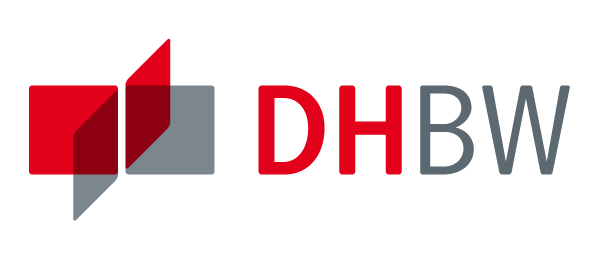Prof. Dr. Ulf-Daniel Ehlers
Veröffentlichungen
-
(2020) : Lehren mit offenen Bildungsressourcen – Kompetenzrahmen für „open educators“ In: Müller Werder, Claude; Erlemann, Jennifer (Hg.): Seamless learning – lebenslanges, durchgängiges Lernen ermöglichen: Münster; New York: Waxmann Verlag GmbH (Medien in der Wissenschaft), S. 69-79. Online verfügbar unter https://www.waxmann.com/index.php?eID=download&buchnr=4244
-
(2020) : A European ethical reference framework for Ai and big data in higher education: A proposal for Discussion. [Conference Session] In: European Distance and E-Learning Network: Human and artificial intelligence for the society of the future. Inspiring digital education for the next STE(A)M student generation: Timisoara, Romania: 22-24 June 2020. Elearning Center, Politehnica University of Timisoara, Romania (EDEN2020 Annual Conference)
-
(2020): „Gigantisches Experiment“.. Einblicke in Leben, Lernen und Lehre in Karlsruhe während der Corona-Krise. Podcast ergründet Umgang mit der Krise. In: DER SONNTAG 23 (3. Mai 2020). Online verfügbar unter https://webreader.bnn.de/wr/?epub=https://webreader.bnn.de/ws/bnn/bnn_der_sonntag/issues/1585/&token=null#/pages/2
-
: Neuer Podcast „Studium im Shutdown“ sammelt Erfahrungen für Forschungszwecke. Unter Mitarbeit von Ulf-Daniel Ehlers und Laura Eigbrecht. In: Campus & Karriere. Online verfügbar unter https://srv.deutschlandradio.de/dlf-audiothek-audio-teilen.3265.de.html?mdm:audio_id=827869
-
(2020): Karlsruher Studierende erforschen künstliche Intelligenz. SWR Aktuell Baden-Württemberg. Sendung 19:30 Uhr vom 7.7.2020 Nachrichtensprecher Georg Bruder (SWR Aktuell), 2020. Online verfügbar unter https://www.ardmediathek.de/swr/video/swr-aktuell-baden-wuerttemberg/sendung-19-30-uhr-vom-7-7-2020/swr-baden-wuerttemberg/Y3JpZDovL3N3ci5kZS9hZXgvbzEyNjkwNjU/
-
(2019) : Future Skills and the Future of Higher Education In: International Council for Open and Distance Education: Conference Proceedings: Volume 1: Full Papers 2020: 28th ICDE World Conference on Online Learning: Dublin, Ireland: 3-7 November 2019, S. 193-207
-
(2019) : Future Skills und Hochschulbildung – Future Skills Readiness In: Gesellschaft für Medien in der Wissenschaft: Teilhabe in der digitalen Bildungswelt. Unter Mitarbeit von Jörg Hafer, Martina Mauch und Marlen Schumann: 27. Jahrestagung der Gesellschaft für Medien in der Wissenschaft e.V. “Teilhabe an Bildung und Wissenschaft”: Berlin: 16.09. - 19.09.2019: Münster; New York: Waxmann (Medien in der Wissenschaft), S. 37-48
-
(2019) : Learning Spaces and Places of Digital and Networked Society In: IEEE: 2019 IEEE 19th International Conference on Advanced Learning Technologies (ICALT): Proceedings: 19th IEEE International Conference on Advanced Learning Technologies: Maceió, Brazil: July 15-18, 2019, S. 29-33
-
(2019) : A New Framework for Professional Higher Education: Creating Synergie between Theory and Practice.. The case of Baden-Wuerttemberg Cooperative State University In: International Association of Sustainable Globalization: Proceedings of International Association of Sustainable Globalization: 2nd International Conference: Kerala, India: 10th– 13th January, 2019
-
(2019): When is Open and Online Learning Relevant for Curriculum Change in Higher Education? Digital and Network Society Perspective. In: Electronic Journal of E-Learning 18 (1), S. 88-101. DOI: 10.34190/EJEL.20.18.1.007
-
(2018) : Characteristics of digital and network society: emerging places and spaces of learning In: Volungevičienė, Airina; Szűcs, András (Hg.): Exploring the Micro, Meso and Macro: Navigating between dimensions in the digital learning landscape: Book of Abstracts: EDEN 2018Annual Conference: Genoa,Italy: 17-20June 2018. European Distance and E-Learning Network
-
(2018) : Characteristics of digital and network society: emerging places and spaces of learning In: European Distance and E-Learning Network: Exploring the micro, meso and macro: Navigating between dimensions in the digital learning landscape: 27th annual conference: Exploring the micro, meso and macro: Navigating between dimensions in the digital learning landscape: Genova, Italia: 17-20 June 2018
-
(2018) : Defining a Framework for Digital Global Collaboration Cultures In: ASEM Education: ASEM Cooperation and mobility in a digital world – Presentation by awardees of the Call for papers and joint workshop discussion: ASEM Education in a digital world: Bridging the continents – connecting the people?: Cologne, Germany: 20/11/2018 - 21/11/2018. ASEM Education
-
(2018) : Support Learning through Microcredentialling – The case of the MicroHe initiative In: Volungevičienė, Airina; Szűcs, András (Hg.): Exploring the Micro, Meso and Macro: Navigating between dimensions in the digital learning landscape: Book of Abstracts: EDEN 2018Annual Conference: Genoa,Italy: 17-20June 2018. European Distance and E-Learning Network
-
(2018) : Support Learning through Microcredentialling – The case of the MicroHe initiative In: European Distance and E-Learning Network: Exploring the micro, meso and macro: Navigating between dimensions in the digital learning landscape: 27th annual conference: Exploring the micro, meso and macro: Navigating between dimensions in the digital learning landscape: Genova, Italia: 17-20 June 2018
-
(2018) : Support learning trough microcredentialling – The case of the MicroHE initiative In: Volungevičienė, Airina; Szűcs, András (Hg.): Exploring the Micro, Meso and Macro: Navigating between dimensions in the digital learning landscape: Book of Abstracts: EDEN 2018Annual Conference: Genoa,Italy: 17-20June 2018. European Distance and E-Learning Network
-
(2018) : Support learning trough microcredentialling – The case of the MicroHE initiative In: European Distance and E-Learning Network: Exploring the micro, meso and macro: Navigating between dimensions in the digital learning landscape: 27th annual conference: Exploring the micro, meso and macro: Navigating between dimensions in the digital learning landscape: Genova, Italia: 17-20 June 2018
